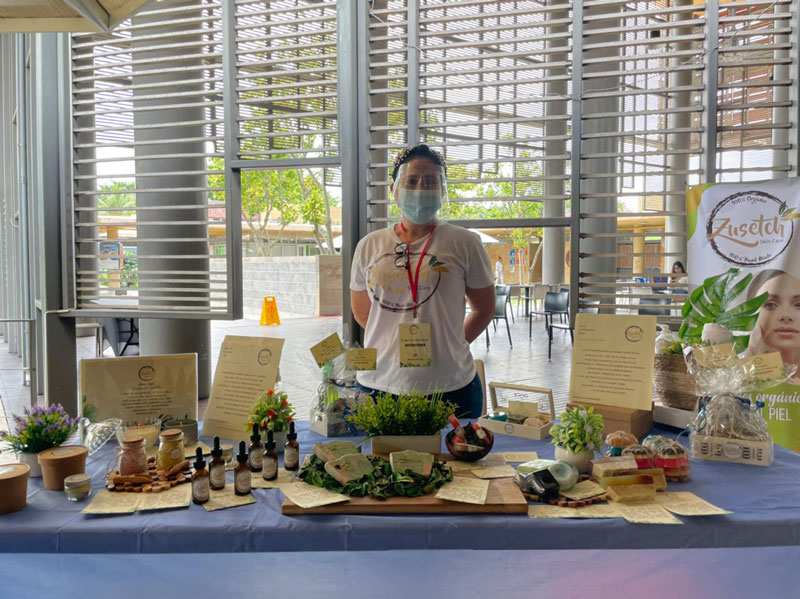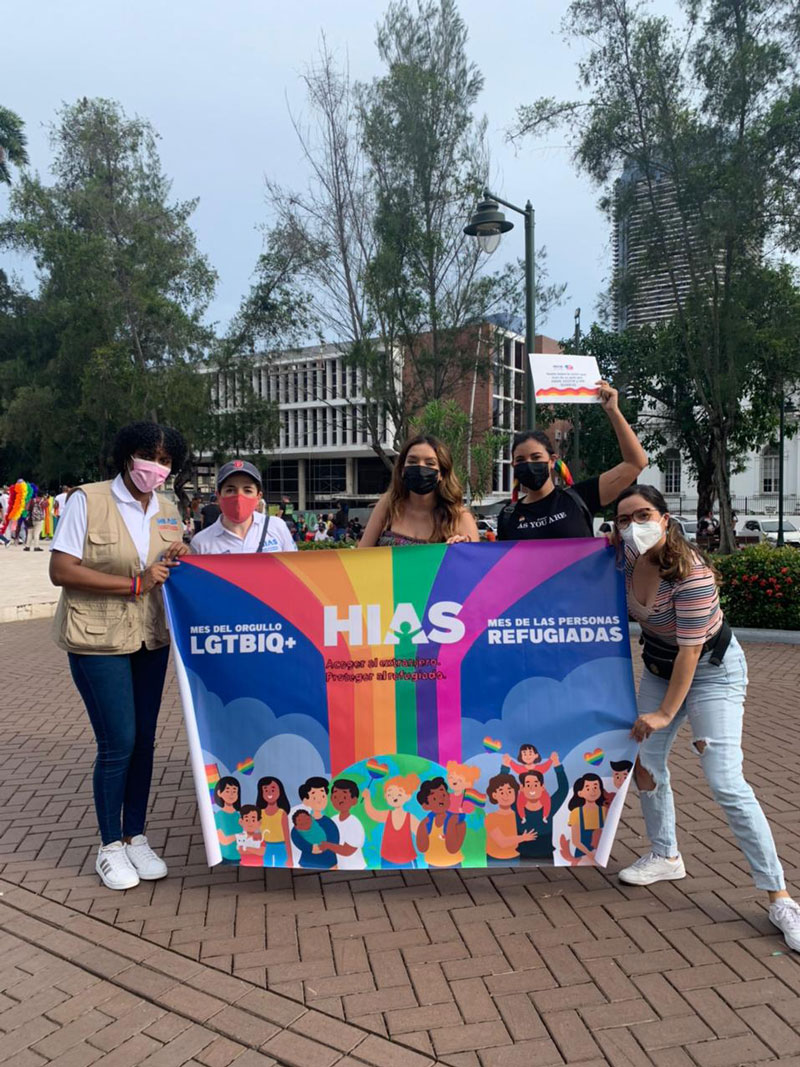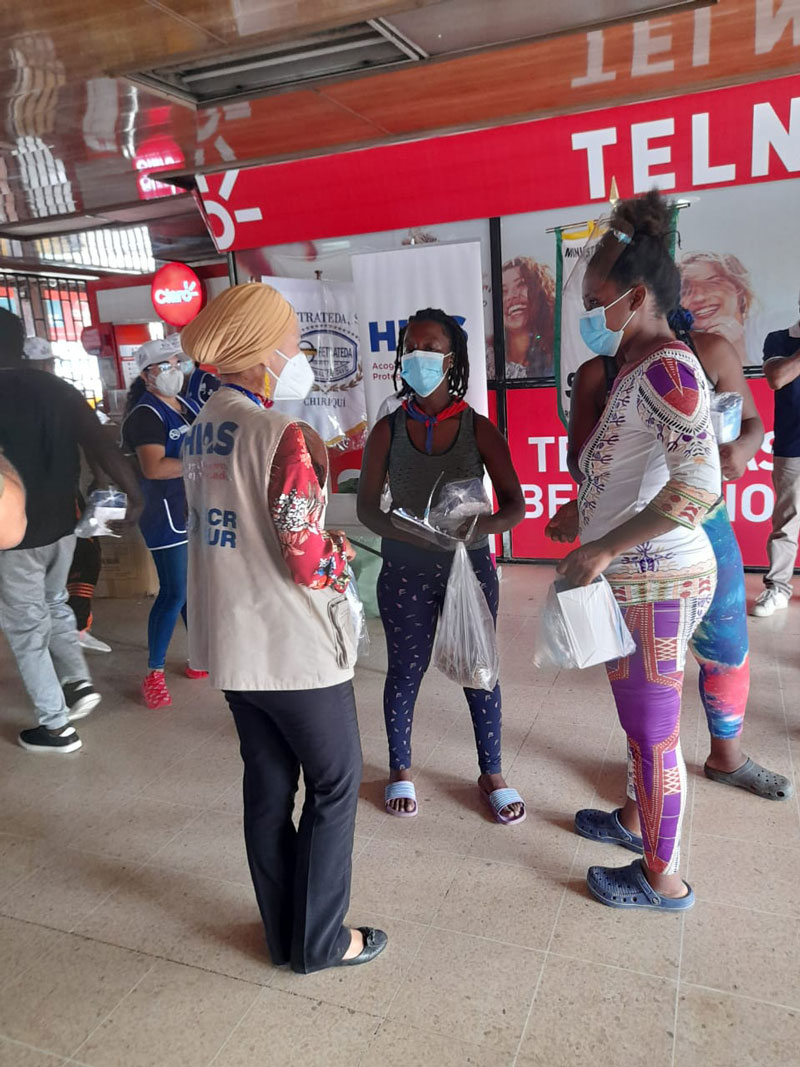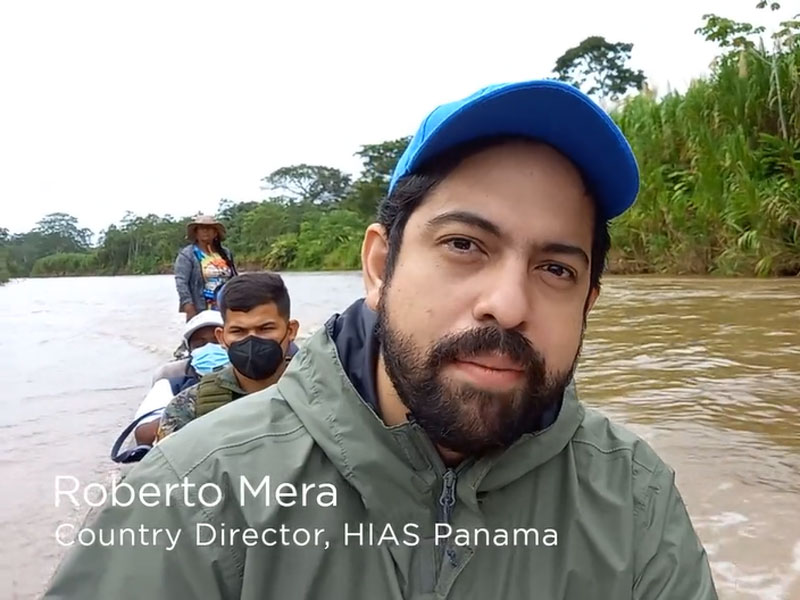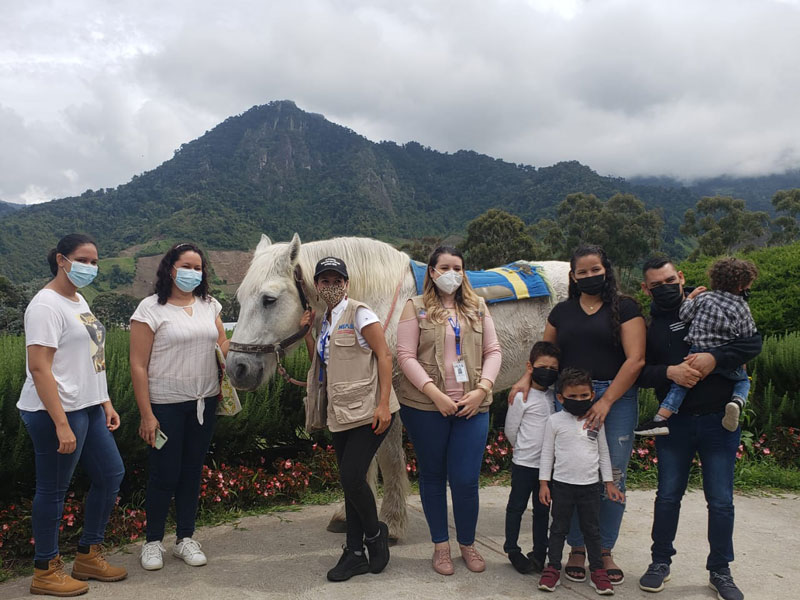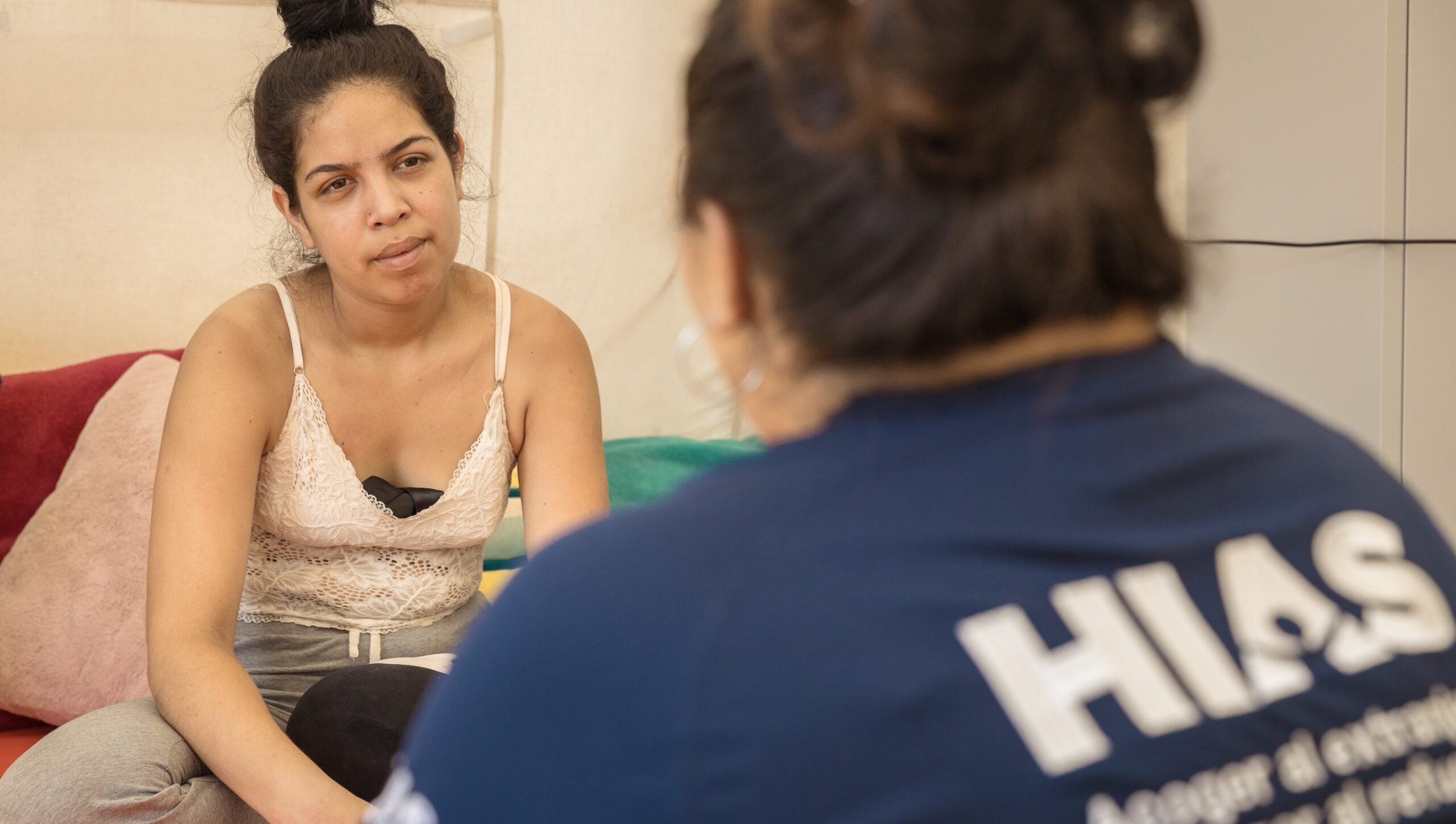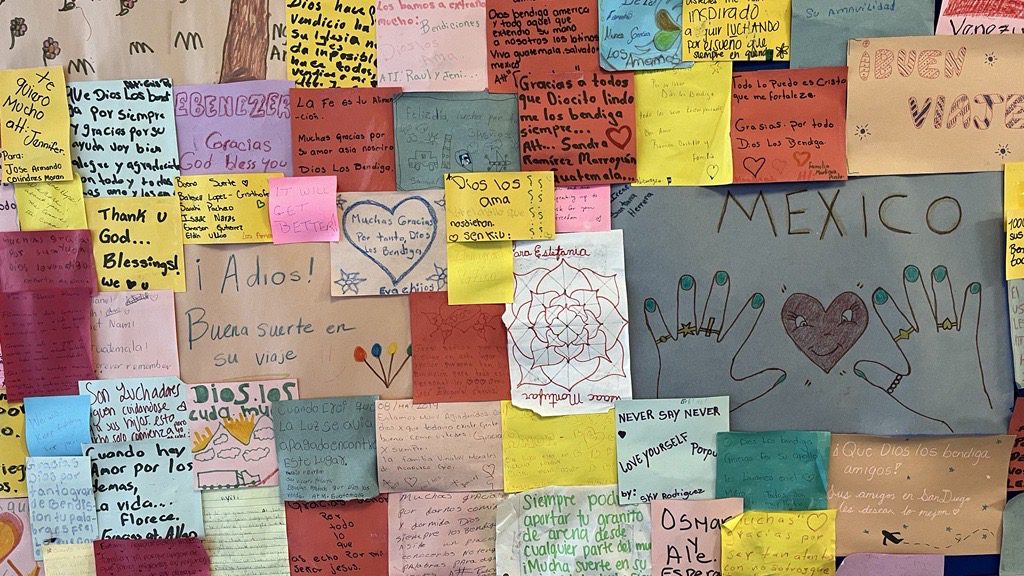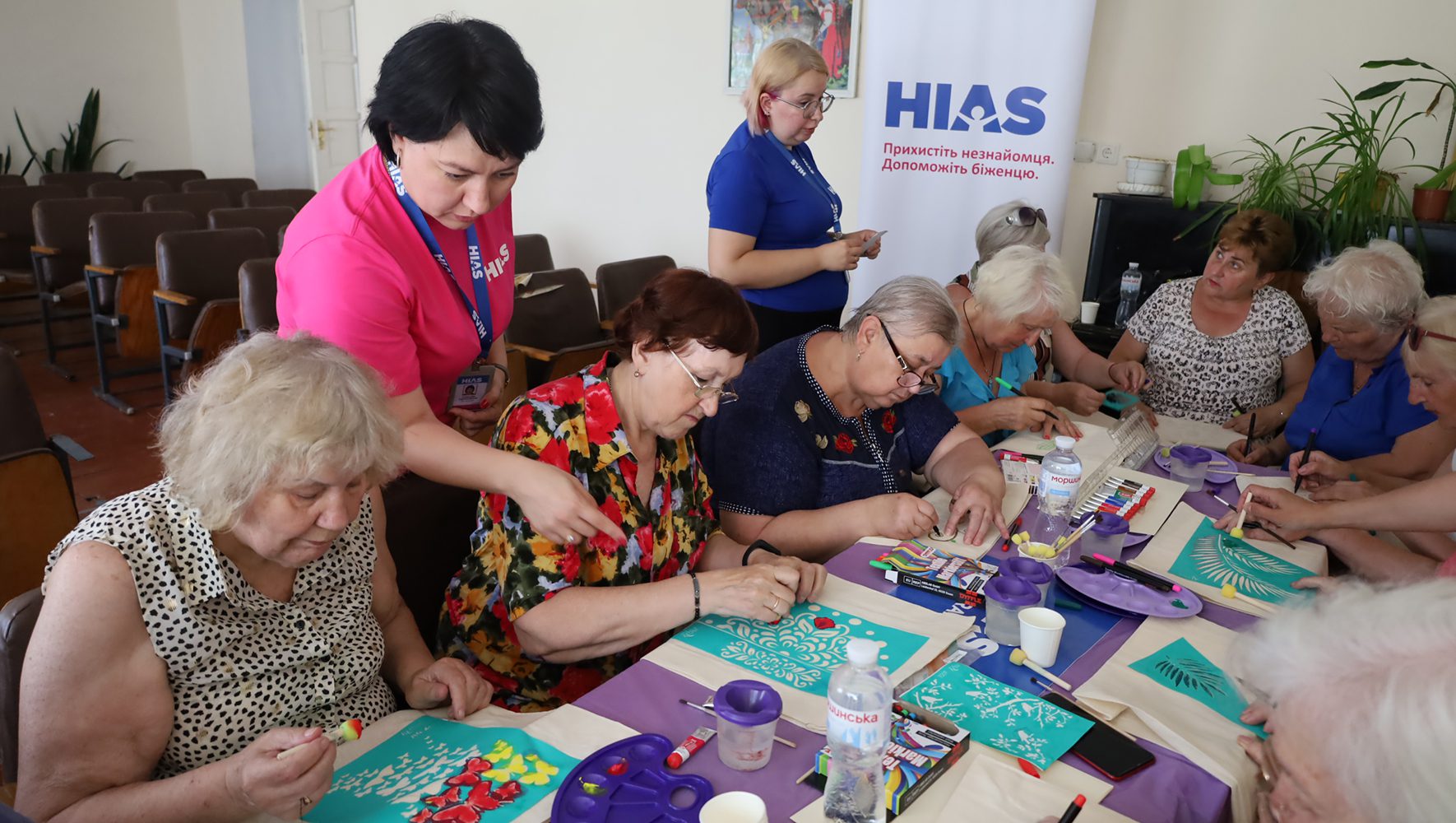HIAS Panama Celebrates Decade of Change
By Sharon Samber, HIAS.org
Jan 05, 2022
At HIAS Panama the only two constants for the past 10 years are opposites who strangely work well together — change and stability.
Ten years ago HIAS Panama comprised a mere handful of staffers working on border assistance with funding only from the U.S. State Department. Fast forward a decade and the 30-strong staff are able to provide assistance far and wide with the help of diverse donors.
The work grows but the attitude is rock solid. Ask Roberto Mera, the country director, how this growth happened and he has three words: trust, spirit, and teamwork.
The trust and collaboration with HIAS headquarters brought about the transformation from three overextended people in one little office, to the bustling and productive HIAS Panama offices — one in Panama City and another in Chiriqui — of today. HIAS Panama also carries out interventions in main cities where refugees and migrants live, such as Panama West and San Miguelito.
As for spirit and teamwork, just ask “Lisa.” In 2020, HIAS Panama launched L.I.S.A. (Línea Segura de Apoyo), a virtual safety support line designed to strengthen communication and respond to the increase in needs due to COVID-19. HIAS identified individuals with acute mental health and psychosocial support needs and victims of gender based violence through L.I.S.A. — the awareness campaign included the friendly smiling character “Lisa” — and conducted assessments over the phone. The hotline has already helped hundreds during the pandemic.
“L.I.S.A.'s character gave a face to people and that helped during the lockdown,” Mera said.
Due to its location, Panama hosts thousands of Central Americans, and serves as a transit point for Cubans and other Caribbean, African, and Asian refugees and migrants traveling north in search of asylum. HIAS Panama has provided assistance to respond to Venezuelans’ urgent needs during their migratory crisis.
There are also a significant number of people fleeing El Salvador, Guatemala, Honduras, and Nicaragua who make their way south to Costa Rica, find it too expensive, and try to eke out a living in Panama, though there are limited work rights for displaced people.
“Panama has stepped up to handle the region’s crises affecting Venezuela, Colombia, Northern Central America, and Nicaragua,” said Rachel Levitan, HIAS’ vice president for international policy and relations. “With displaced populations continuing to transit through Panama to seek safety, HIAS Panama staff create welcome and support.”
Even if it means going to the most dangerous areas of the country, HIAS Panama tries to be there to help. Many people fleeing conflicts move through the dangerous Darién Gap on their journeys northward. HIAS Panama just placed several staff members on the ground in the Darién region and is looking to see whether it can do more. On a recent assessment trip Mera got a first hand look at the situation and, together with Ignasi Calbo, HIAS’ deputy regional director for Latin America, saw the need to scale up operations, especially for increased protection against sexual violence of refugees.
For years, HIAS Panama has helped displaced people find employment through job fairs and entrepreneurial programs as well as giving seed capital so people can learn new ways to sell their products and become part of the economy. The office also works on many kinds of mental health programming, working with local universities to create mental health training sessions for students and teachers.
HIAS Panama is all about cooperation and collaboration, according to staff. It works successfully with private and public sectors, and is especially proud of its agreements with the government to include refugees and migrants in national programs.
But Mera and his staff want more: increased access to mental health services for women, for example, as well as getting more women into gender-based violence programming and training them to become community mobilizers.
“I would like to see more women empowered,” Mera said.
Reflecting on ten years of HIAS’ work in the country, Mera indicates that the recipe is more of the same: change. After a visit from U.N. High Commissioner for Refugees Filippo Grandi who marked World Refugee Day with HIAS Panama, perhaps Mera can aim high. But right now Mera’s aims are more practical than anything else: strengthening economic inclusion programs, reaching more people with cash-based intervention, and helping refugees with health issues.
“There’s a lot I would like to do,” he said.
